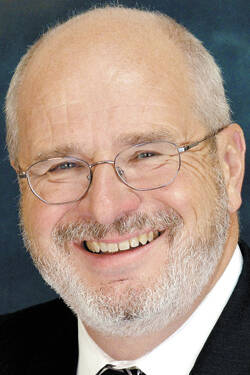Politics, particularly presidential campaign politics, can be an awful lot like middle school.
And maybe that’s why so many people have come to hate politics and political maneuvering so much.
Middle school is not a happy or secure time for many — maybe even most — people. It’s a time of anxiety and awkwardness in which the pressure to find ways to fit in can be overwhelming.
That’s why early adolescents tend to clump together in packs. There is both safety and comfort in belonging.
But middle-schoolers often form those packs in ways that aren’t healthy. They define their friend groups as much — or even more — by who they aren’t rather than who they are.
The cliques and posses that clog school hallways can be designed to exclude rather than include people. To create an “in” crowd, one must push others outside the circle.
Those who are told they don’t belong find the experience demeaning at best and devastating at worst.
That’s because there’s almost always a value judgment involved: You’re not cool enough or smart enough or pretty enough or tough enough to be one of us.
In other words, the message is “you don’t belong.”
It’s easy to see how Donald Trump relies on that message.
He and his supporters define themselves by denigrating and condemning the people they don’t like.
Immigrants.
Women, particularly feminists.
Liberals.
Journalists.
The list could go on and on.
Trump’s policy proposals never have been that coherent—the speed with which he switches back and forth between being a protectionist and a free-trader can be blinding — but his animosities do not vary. He pulls his constituency together because they share the same dislikes for the same groups of people.
They define themselves less by the values they have in common than they do by the things they fear, distrust or abhor.
The language that Trump uses and that his supporters embrace reflects this.
He rarely just says that he disagrees with someone.
No, he calls them “nasty” or “stupid” or “thieving” or “lying.” The goal is to make it clear that they are outside the circle. They don’t belong.
But Trump and the Republicans aren’t the only ones who indulge in this dubious practice.
The Democratic candidates for president and vice president, Vice President Kamala Harris and Minnesota Gov. Tim Walz, have been effective at labeling Trump and his running mate, U.S. Sen. J.D. Vance, R-Ohio.
Harris and Walz have used terms—“creepy” and “weird”—that have stuck, driving Trump, in particular, crazy.
Democrats cheer the vice president and the Minnesota governor when they tag their opponents with those words as lustily as Republicans applaud for Trump when he insults the people he and his followers don’t like.
Admittedly, the terminology Harris and Walz use is gentler than Trump’s, but the intent and the message in both cases are the same.
You’re outside the circle.
You don’t belong.
Some of this is to be expected.
Elections, after all, are about forcing people — voters — to make choices. Those choices by definition are not nuanced. We don’t get to cast our ballots for one candidate’s immigration policy and the other’s education platform.
In some ways, that’s a pity.
Because our political campaigns now never seem to end, the choices—the exclusions—we make go on and on and on. We spend much too much of our lives figuring out what we don’t like about our fellow citizens.
This affects our ability, Republican or Democrat, to govern once the ballots have been counted and a winner has been declared. There’s no reason for us to try to collaborate with people we see as not part of our crowd. Given that government in a republic such as ours is all about resolving differences and balancing interests, refusing to listen to anyone outside our circle makes it difficult for us to get anything substantial done.
But it also makes it harder for us just to get along.
Most of us grow out of the cliques we were part of when we were 13. We learn that it’s okay to disagree with people from time to time and still be friends with them.
In other words, we mature.
We grow up.
If middle-schoolers can do that, maybe our politics could, too.
John Krull is director of Franklin College’s Pulliam School of Journalism and publisher of TheStatehouseFile.com, a news website powered by Franklin College journalism students. The views expressed are those of the author only and should not be attributed to Franklin College. Send comments to [email protected].





